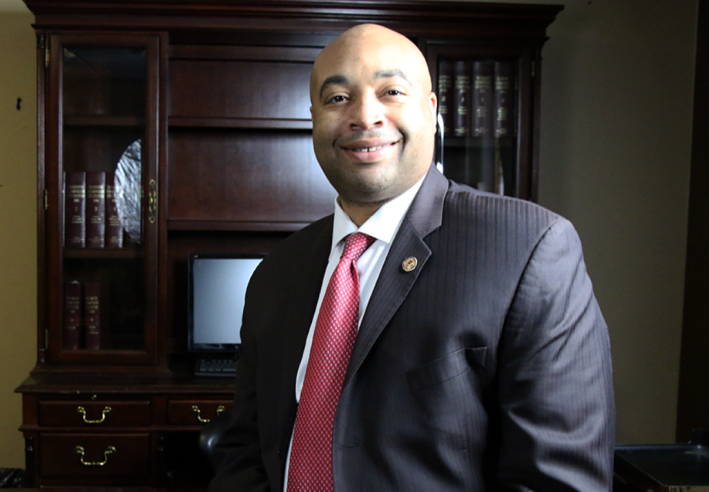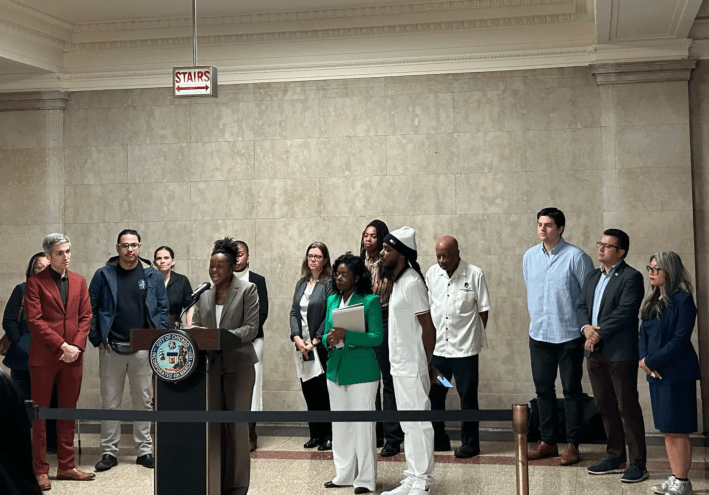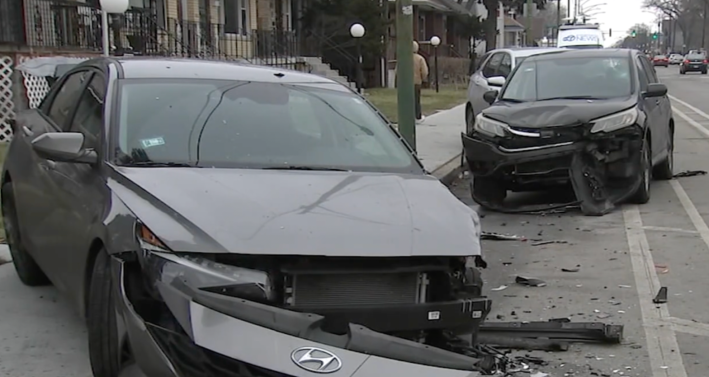
This article was written by John Greenfield and includes research by Cameron Bolton.
Last week a new state new bill was proposed with the worthy goal of preventing police officers from making pretextual, racially motivated traffic stops of drivers of color. Some social justice activists have argued that this legislation is a step in the right direction.
However law enforcement representatives and traffic safety advocates pointed out that the legislation in its current form could actually endanger more people by banning enforcement of laws against dangerous driving. As a result, the proposal's sponsor reportedly no longer plans to move forward with the bill in its current form.
House Bill 4603, was filed by State Representative Justin Slaughter (D-27) who lives in Chicago's Washington Heights community and represents parts of the city's South Side and the south suburbs. According to his website, “Slaughter has always exemplified a strong commitment to address and empower under-served communities.”

Here's the synopsis of Bill HB4603, as introduced by Slaughter:
Amends the Illinois Vehicle Code. Provides that no law enforcement officer shall stop a motor vehicle for: (i) failing to display registration plates or stickers; (ii) being operated with an expired registration sticker; (iii) violating general speed restrictions (unless that violation is a misdemeanor or felony offense); (iv) improper lane usage (unless that violation is a misdemeanor or felony offense); (v) failing to comply with certain requirements concerning vehicle lamps; (vi) excessive tint; (vii) defective mirrors; (viii) an obstructed windshield or defective windshield wipers; (ix) defective bumpers; (x) excessive exhaust; and (xi) failure of the vehicle operator to wear a safety belt. Provides that no evidence discovered or obtained as the result of a stop in violation of these provisions, including, but not limited to, evidence discovered or obtained with the operator's consent, shall be admissible in any trial, hearing, or other proceeding. Preempts home rule powers.
Let's aside the details of what's proposed, which we'll talk about in a bit. Here's what a representative of the mobility justice nonprofit Equiticity had to say about the proposal's goal of preventing traffic enforcement from being misused as an excuse to conduct searches, which could escalate to violence.
“The proposed bill is a commendable start in addressing concerns surrounding traffic stops," said Equiticity's director of advocacy and movement building Equiticity, and coordinator for the Free2Move Coalition, Jose Manuel Almanza Jr. "But it lacks the comprehensive vision necessary to create meaningful and lasting change. To truly advance racial equity in traffic safety, it is imperative that lawmakers engage with communities directly impacted by these issues and collaborate with organizations such as the Free2Move Coalition to ensure that their voices are heard and their needs are addressed.”

The Free2Move Coalition, is an alliance of community organizations that work towards creating a safer and more racially equitable Chicago transportation system. According to Almanza, “Their expertise and insights are invaluable in shaping policies that are not only effective but also responsive to the needs of BIPOC [Black, Indigenous, (and) People of Color] communities.”
“Moving forward, I urge representatives to actively engage with the Free2Move Coalition to incorporate their perspectives and recommendations into the drafting and development of this legislation related to traffic stops,” said Almanza. “By doing so, we can work together to create a more just and equitable system that ensures the safety and well-being of all Illinois residents, regardless of race or background.”

Whether Slaughter should have done more outreach to communities impacted by traffic stop concerns, and organizations that work on this issue, is a valid question. In addition, it should have been obvious to the state rep that the legislation he proposed had serious flaws.
Arguing that police shouldn't be allowed to stop drivers for things like "failing to display registration plates or stickers", relatively victimless infractions, is one thing. But it makes no sense to say that officers can't pull motorists over for extreme speeding or reckless lane use, lawbreaking that might immediately cause serious injuries or fatalities if it's not stopped.
For example, if the speeding isn't severe enough to call for a misdemeanor or felony, the bill dictates that the violation wouldn't justify a traffic stop. But, according to existing Illinois law, that could mean driving 25-35 mph over the speed limit, which could easily have deadly consequences.
"[If] you are in a 30-mile-an-hour speed zone in a residential area and somebody’s going 50... we can’t stop the vehicle?" Jim Kaitschuk, executive director of the Illinois Sheriff’s Association, said to NBC Chicago's Charlie Wojciechowski.
Kaitschuk was also concerned that DUI enforcement could be affected by limiting officers' ability to pull over drivers weaving from lane to lane. "Under this, we wouldn't have been able to stop them."
Safe streets advocates weren't pleased either. Here's a typical response.
Policy does not need to be a zero sum game of safety versus privacy. This bill is garbage.
— Pod thoughts 🐉🎉 (@chapinthecity) January 30, 2024
Last Monday, a week after Slaughter filed the bill on January 29, he still had no cosigners, NBC reported. And Kaitschuck told the network the rep called him last week to say he wasn't planning to move forward with the legislation. "His indication was this bill went way too far for where he intended for it to go."
It's certainly important to prevent police from using minor violations as an excuse to unfairly single out drivers of color for searches. But it would be totally counterproductive to try to do that by forcing officers to look the other way when motorists drive at potentially lethal speeds or while intoxicated. If Slaughter still wants to pass this bill, he needs to go back to the drawing board and come up with a new version that would be a net win for public safety.
Read the NBC Chicago report here.

Did you appreciate this post? Please consider making a tax-deductible donation to help Streetsblog Chicago keep publishing through 2025. Thank you.




